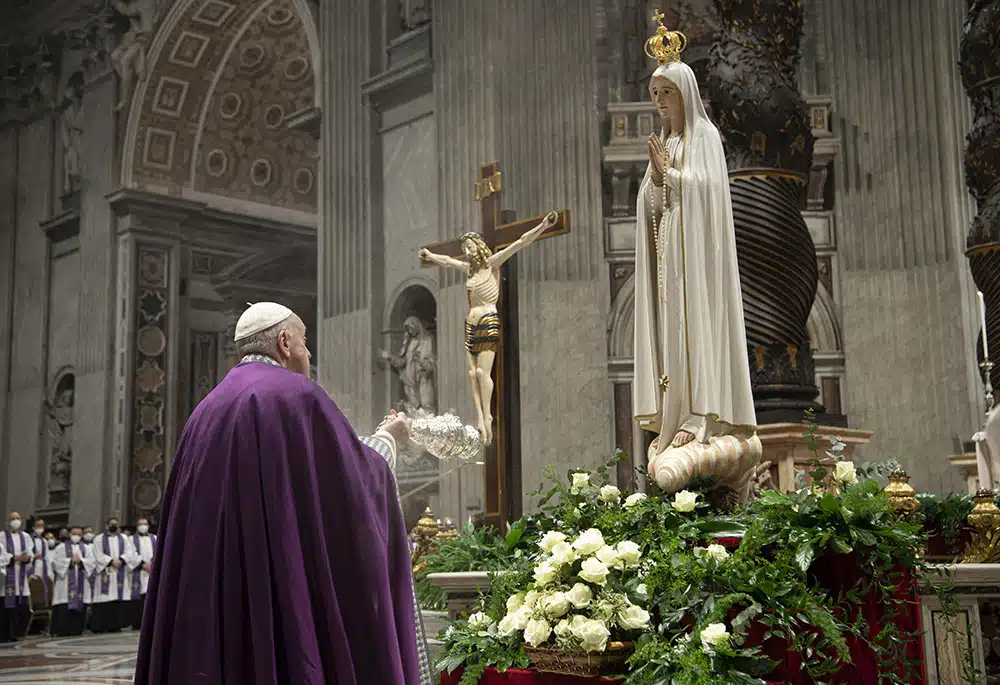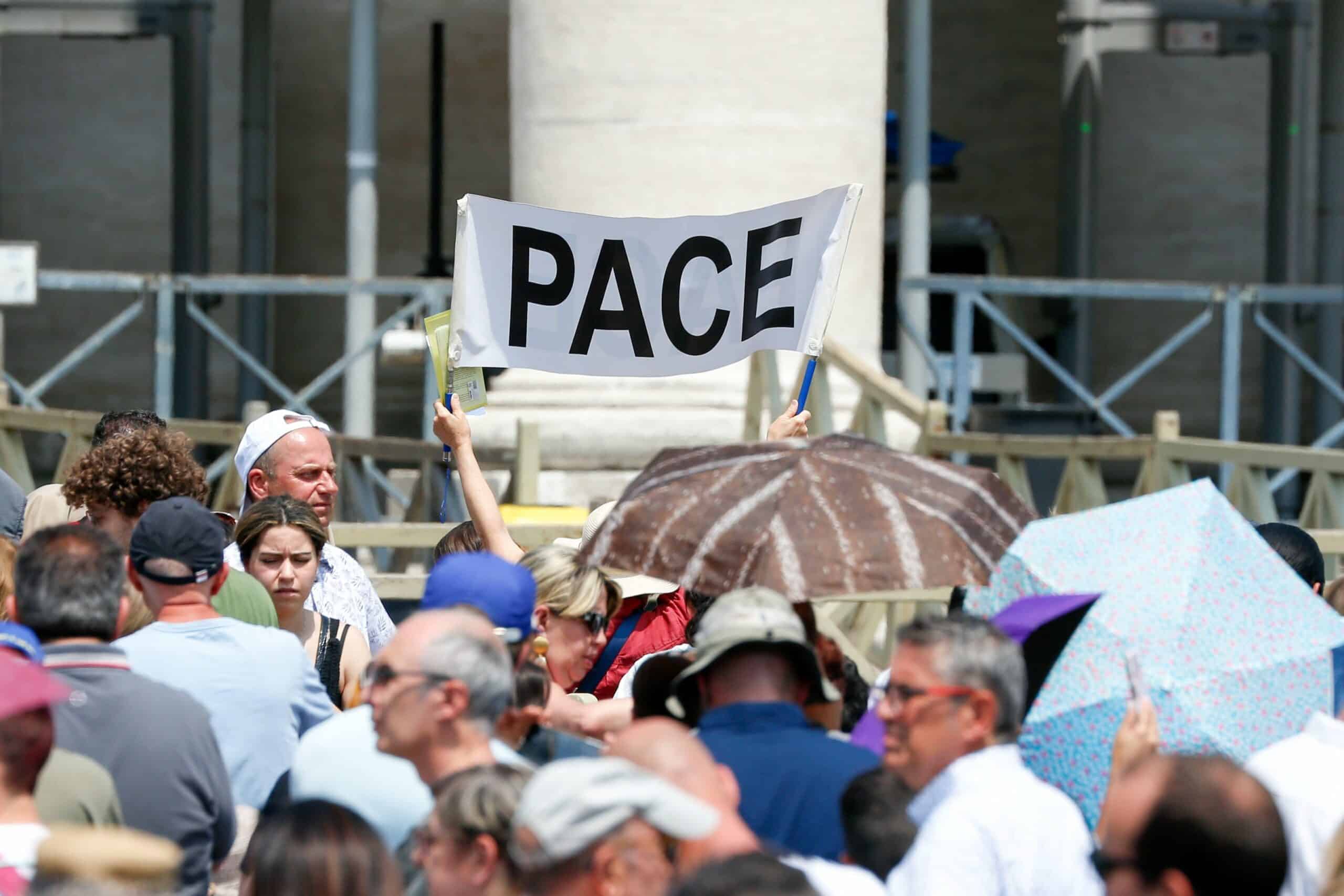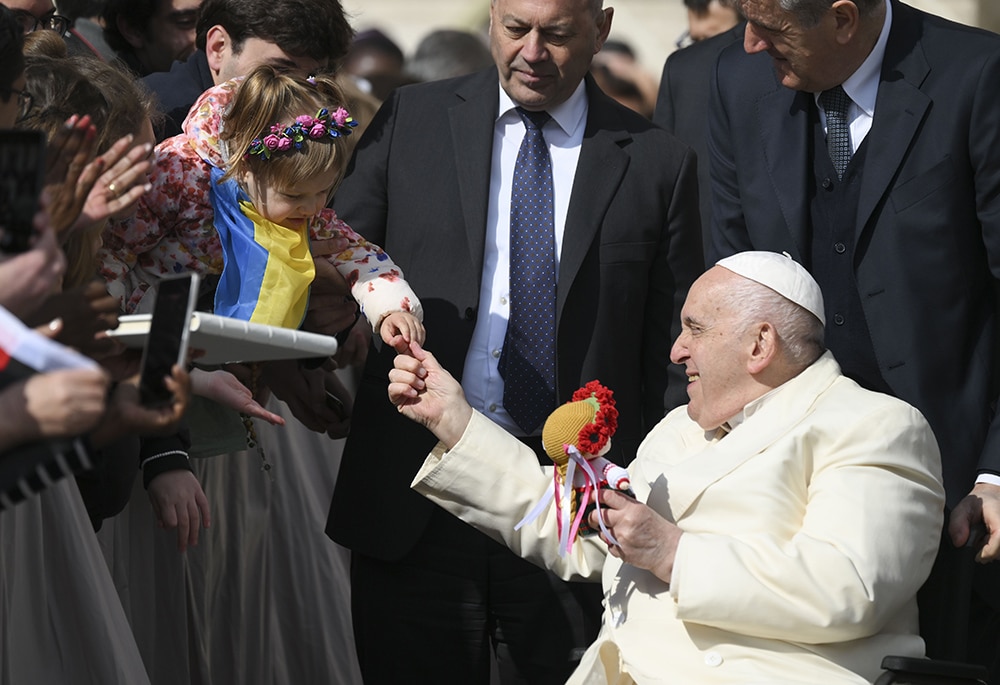As Ukraine war rages on, Pope Francis should reorient the church toward 'just peace'
Press Clip Source: National Catholic Reporter
Link to Source: Here

Citing growing conflict and instability around the world, Pope Francis shared an unequivocal message in mid-June: "The time has come to say an emphatic 'no' to war" and state decisively "that wars are not just." The message was read by Archbishop Paul Gallagher, the Vatican's foreign minister, at the recent U.N. Security Council ministerial-level briefing, the theme of which was "the values of human fraternity in promoting and sustaining peace."
The conditions for a just war are enshrined in the doctrine of the Catholic Church (Catechism of the Catholic Church, paragraph 2309). While we may debate whether there has ever been a truly just war, Francis' claim — that the wars of today cannot be justified — is widely apparent. Our wars are not of last resort or of just cause. And they are no longer executed with rightful intention — the predominant theme in the wars of the 21st century is the dramatic rise in the harm and death of civilians. Ninety percent of wartime casualties today are civilians.
Nonviolent activists, peace builders, and peace organizations, such as the Catholic Nonviolence Initiative, have been sounding the alarm bell about this focus on "just wars" for decades. We've called for the church to adopt a just peace ethic. A just peace is "a way of political cooperation for the common good, respect for the dignity of all persons and the natural world, preventing violence before it begins, and the transformation of conflict by nonviolent strategies."

Part of our limitation to adopting a just peace is our lack of moral imagination of what is possible without violence when faced with complex global, regional and interpersonal conflict. When we choose to look, however, examples abound of what peace and nonviolence makes possible. Organizations like Nonviolent Peaceforce, for example, utilize a set of tools called "unarmed civilian protection," that effectively protect people caught in the crossfire of war, while simultaneously building a foundation for peace through the visible use of nonviolence.
In Ukraine local volunteer groups continue front-line peaceful actions. These groups are evacuating people from bullets and bombs, while also distributing aid where international humanitarian organizations don't go. In the Philippines, where I've engaged in interreligious dialogue and Catholic peace building, we've seen peace builders supporting rival clans to end their centuries of conflict and lay down their weapons. When our daily news of conflict is almost solely focused on military maneuvers there is little space for these stories of peace.
If Francis wants the church to join him in an emphatic "no" to war, he must actively promote nonviolent practices and strategies, such as unarmed civilian protection and conflict transformation. He must direct clergy to share homilies filled with stories of peace building in local communities, and of nonviolent resistance in times of war. He must use the full breadth of tools at his disposal to lead the church in seeing the current, lived reality of his vision of peace and, by extension, developing doctrine to match it (a consistent call from the Catholic Nonviolence Initiative has been for the pope to write an encyclical on a just peace ethic).

And while a just peace ethic can fuel our development of doctrine, that development of doctrine, in turn, will further fuel the everyday examples of nonviolence and peace building. Scores of peace builders in places such as the Philippines, Colombia, South Africa, and Indonesia name their Catholic faith as the foundation of their work.
In South Sudan, Women's Protection Teams bringing safety and peace to their communities through unarmed civilian protection take an ecumenical approach to praying for peace — each month the whole team joins in prayer in a different house of worship. This monthly prayer both fuels their hard work of nonviolence and is an act of interreligious peace building itself. I personally came to the work of peace building because I sought out and was inspired by Catholic peace builders, but never was this teaching shared with me in the Sunday pews.
What more could these powerful groups accomplish with the full support of the Catholic Church, her clerical leadership, and her doctrine? What greater legitimacy would a Women's Protection Team in South Sudan have with the blessing of their bishop, for example? How many more members would join them? How much more would local churches resource their peace efforts?
Those of us following in the footsteps of the great Catholic nonviolent leaders of our past and working in solidarity with local Catholics building peace today, rejoice in the pope's teachings on nonviolence and just peace. Francis' challenge remains, however, to lead the hierarchy toward systematic change that matches his aspirational words. As war continues to devastate communities the world over the time is long overdue to shift the focus from just war to just peace. And to become a church fully embodying and amplifying the daily work of peace.
